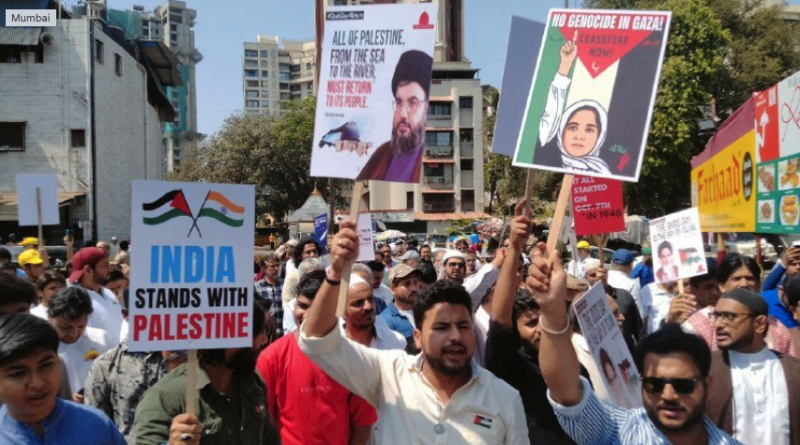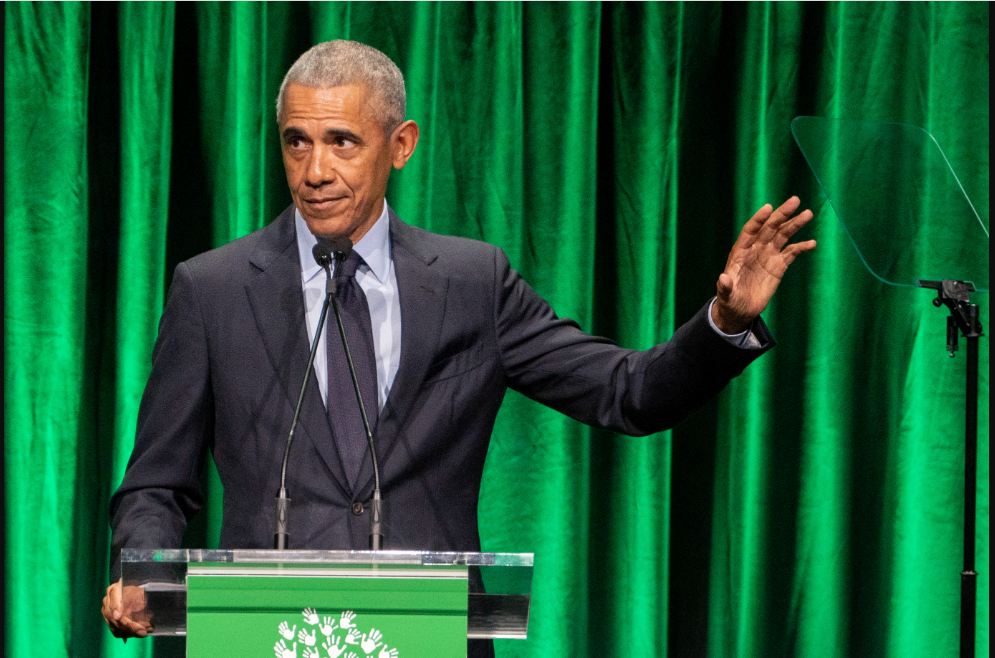OPINION: Kicked Out of OIC, Yet Bleeding for Palestine—The Indian Muslim Dilemma
But Indian Muslims must pause and reflect. Are we seen as comrades in these causes, or merely as expendable emotional masses?
Indian Muslims are among the most emotionally responsive people when it comes to the global Muslim narrative. We protest for Gaza, chant for Palestine, and stand in solidarity with Muslims in far-off lands — from Iraq to Syria, from Myanmar to Sudan. But when we look back at what the so-called Ummah has done in return for us, the answer is chillingly clear: nothing.
Despite being home to one of the largest Muslim populations on earth — over 200 million — Indian Muslims have never had a seat at the table of the Organisation of Islamic Cooperation (OIC). Not once in its five-decade existence has this body, which claims to represent global Muslim interests, offered us any representation or voice. This deliberate exclusion begs a serious question: why do Indian Muslims continue to sacrifice their time, emotions, and sometimes even freedom, for a “brotherhood” that has consistently ignored and sidelined them?
Historical Snub: The 1969 Rabat Conference
Let us revisit a painful yet revealing moment in history. In 1969, during the first Islamic Summit in Rabat, Morocco, India was invited to participate. Representing India was Fakhruddin Ali Ahmed, a respected Muslim statesman who would later become President of India. Yet, under pressure from Pakistan, India was unceremoniously shown the door. This wasn’t merely a diplomatic slight — it was a clear message from the Muslim world: your faith is not enough. Your political identity — as an Indian — is a disqualifier.
The Organisation of Islamic Cooperation, under the guise of representing 57 Muslim-majority countries, chose to side with Pakistan’s insecurities over India’s reality. And from that moment onward, Indian Muslims were treated as outsiders in Islamic diplomacy. One of the world’s largest Muslim populations became invisible in the OIC’s corridors.
The Illusion of Ummah: What Are We Marching For?
Despite this snub, Indian Muslims continue to march passionately for causes like Palestine. They protest Israel’s actions, mourn Gaza’s dead, and share viral slogans of unity. But do Palestinians, or the Arab states, reciprocate this solidarity?
India’s position on the Palestine-Israel conflict has been nuanced, and while it still supports a two-state solution, its growing ties with Israel have been met with strategic silence from Arab capitals. They don’t criticize India, but the Ummah doesn’t protest for Indian Muslims the way Indian Muslims protest for it.
We romanticize Iran — forgetting that Iranian proxies like the Fatemiyoun Brigade killed thousands of Muslims in Syria. We chant the names of Turkish leaders who have more business deals with Israel than speeches about Gaza. We cling to a one-sided idea of the Ummah that refuses to acknowledge us.
Historical Loyalty for Foreign Thrones
This is not new. In the 1920s, Indian Muslims organized the Khilafat Movement to defend the Ottoman Caliphate. The irony? The Ottomans never ruled India. Our ancestors had no direct stake in Turkish affairs. Yet we mobilized nationwide protests, boycotted British goods, and even clashed with colonial authorities — all for a distant throne in Istanbul.
In hindsight, what did the Turks ever do for us? The Caliphate collapsed, Turkey became secular under Atatürk, and Indian Muslims gained nothing from the movement — except perhaps a precedent of misdirected loyalty.
Dr. B.R. Ambedkar — often quoted by modern secularists and even Muslim youth today — was brutally honest in his analysis. He wrote that for many Muslims, the idea of the Ummah superseded national identity. In Thoughts on Pakistan, he cautioned that such a mindset made political loyalty to the nation-state difficult.
Many labelled him a bigot back then. But today, his words resonate more than ever. The hypocrisy is stark: we use Ambedkar as a shield in domestic debates while ignoring his core warnings about divided loyalties and misplaced priorities.
Time to Wake Up
Today, Israel’s war with Hamas evokes mass outrage. Rightly so — civilian casualties are a tragedy. But that energy, that anger, that time — could it not also be directed toward our own local causes?
Thousands of Indian Muslim youth are unemployed. Our schools are crumbling. Our institutions are infiltrated by radicals who don’t empower, but exploit. Women in our community still struggle for basic education and healthcare. Where is our outrage for that?
Why not march for better schooling in Bihar? Why not raise slogans for economic reforms in Uttar Pradesh? Why not channel our collective passion into building libraries, funding scholarships, and creating think tanks? Why must we always be foot soldiers in someone else’s geopolitical war?
A Final Thought
Palestine deserves justice. So do the people of Syria, Yemen, Sudan, and every other place ravaged by violence. But Indian Muslims must pause and reflect. Are we seen as comrades in these causes, or merely as expendable emotional masses? If the OIC can reject us, if Arab regimes can ignore us, if Iran can manipulate us, if Turkey can exploit us — shouldn’t we stop bleeding for them blindly?
The Ummah is a powerful spiritual idea, but as a political reality, it is highly selective. And in that selectivity, Indian Muslims have always been left out.
It’s time we stopped marching for a club that won’t even give us a visitor’s pass.
Disclaimer: Views expressed by writers in this section are their own and do not reflect Milli Chronicle’s point-of-view.



